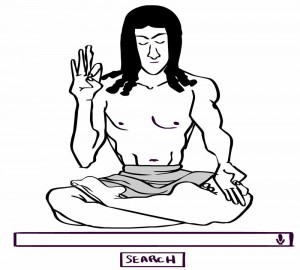When online, ask questions with caution
Have you ever had a question you didn’t want to voice aloud?
I’m not talking about that time you fell asleep in class and had to ask your professor to repeat something obvious. I’m talking about questions that betray personal information; questions that no one in your vicinity could answer; questions that unearth taboos.
You can always Google the answer.
The Internet is vast enough to host venues for every question imaginable, no matter how serious or banal. People go on Yahoo! Answers to ask about everything from sports to relationship advice. Some people send their questions to advice bloggers with impressive followings. As a high school senior, I went on College Confidential — a popular forum for students — to pick a USC dorm.
The worth of these answers, however, depends on the kinds of questions being asked. Online advice isn’t always credible, but its lack of credibility doesn’t prevent it from being useful.
The Internet is a blessing for people who have trouble with social norms. A few decades ago, these same people had few outlets to express themselves.
Consider the example of a teenager questioning his sexuality in a homophobic environment. Online, a question like “What’s wrong with me?” can be answered by bigots — but people with tolerant mindsets can also weigh in. Because anyone with an Internet connection can respond, online questions reveal diverse outlooks. They present people who’ve been exposed to just one line of thinking with the option to view things differently.
The Internet, however, is no replacement for human contact. That confused teenager could probably use a supportive friend or mentor. But the Internet is better than nothing; it empowers people by letting them know they aren’t alone.
When questions involve hard facts, however, online answers become trickier. Internet anonymity makes it tough to evaluate people’s credentials. Many educators fear that asking a question online means opening yourself up to a slew of faulty information.
One Slate article, for example, looked at this Yahoo! Answers question: “What beliefs and customs did many of the Native Americans have in common?” The answer that was chosen as best is “American pie.” It’s hard not to look at that thread and lose a little faith in the Internet.
Nevertheless, there’s nothing inherently bad about having alternatives to expert opinions. Experts often have difficulty translating their knowledge to laypeople.
Who would you rather have tell you how to fix a minor problem with your laptop: a seasoned techie or an average person who’s faced the exact same problem? The Internet makes it easy to take the latter option.
In addition, many people suffer from some variation of a supremacy complex where many consider answers on the Internet to be factual. Their belief in their correctness prevents them from really considering alternatives.
A certain amount of skepticism toward expert opinions is healthy. It’s why people turn to Google when they’re sick. Though we’re taught that conventional medicine is completely dependable, the reality is far less comforting. Doctors do fail. The Internet gives people access to a range of alternative cures.
A problem arises when skepticism turns into unwavering belief in a random comment on the Internet. It’s the idea that drives the MIT Center for Collective Intelligence: Many great solutions come from groups of random individuals working together.
Collective intelligence also harnesses the power of specific knowledge. Doctors go through years of training, but a 50-year-old woman in Alabama might share your weird, inexplicable allergy. The Internet allows you to talk to her.
In many ways, typing a question into Google is the equivalent of yelling into a crowd and expecting a coherent response. People contradict each other, and the loudest people don’t always make sense.
You have to know what you’re looking for.
Maya Itah is a senior majoring in communication. Her column “From Behind the Screen” runs Thursdays.


Try this one: “How many people, and what kinds (Jews, others) were REALLY killed in the H0locaust, by whom, when, why, where, and by what means?”
If you fail rapidly to express full acceptance of the first, loudest, and most-frequent answer (starting with 6 million Jews), you WILL be sorry you asked this question, or even appeared to hear the “wrong” answers.
You are NOT to question the loudest answer to THIS question, which has been shouted, with increasing volume and vehemence, for over 60 years now.
Maya, I MUST say your column is VERY thought-provoking. Eloquent, too!